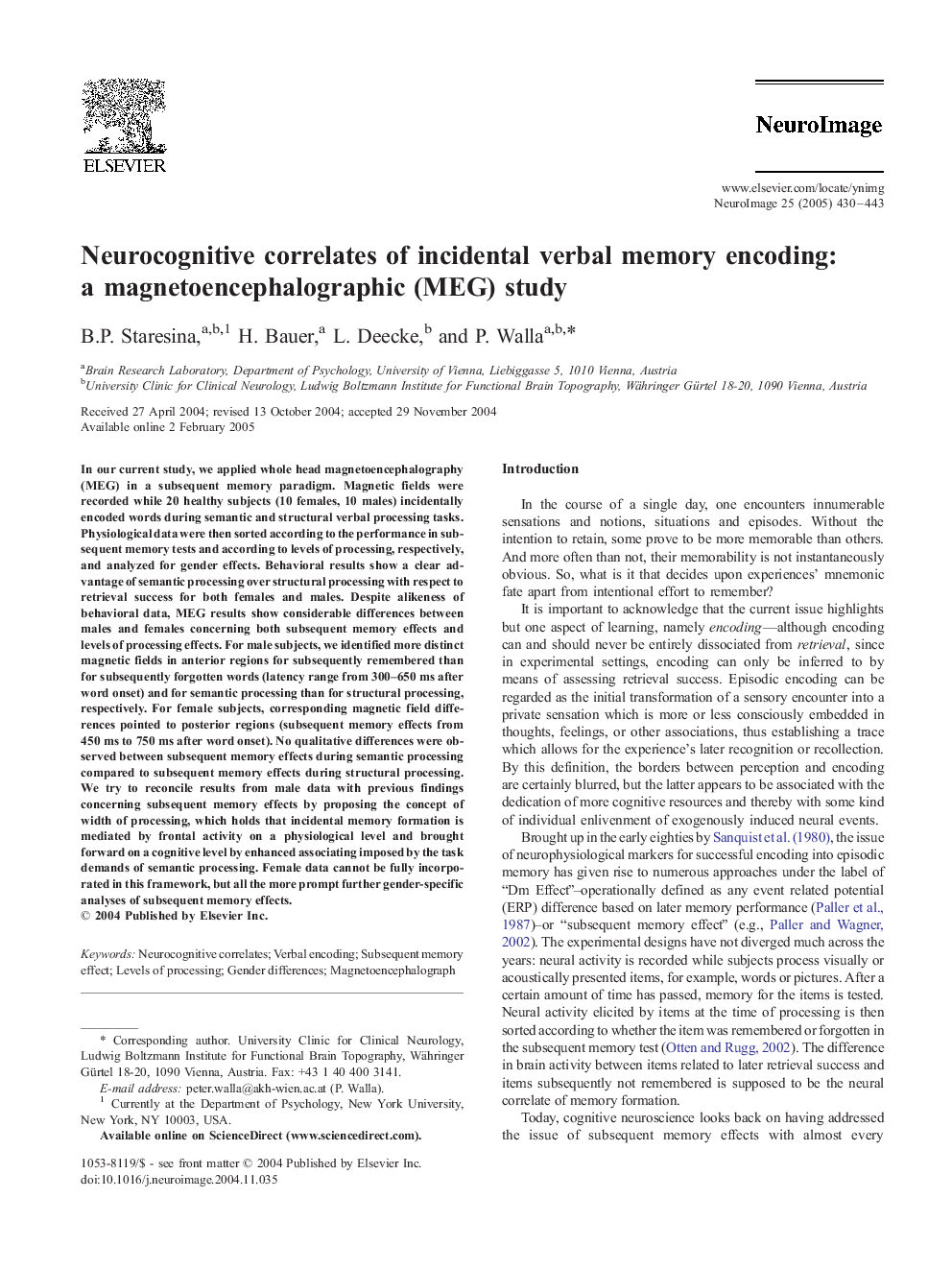| Article ID | Journal | Published Year | Pages | File Type |
|---|---|---|---|---|
| 9198136 | NeuroImage | 2005 | 14 Pages |
Abstract
In our current study, we applied whole head magnetoencephalography (MEG) in a subsequent memory paradigm. Magnetic fields were recorded while 20 healthy subjects (10 females, 10 males) incidentally encoded words during semantic and structural verbal processing tasks. Physiological data were then sorted according to the performance in subsequent memory tests and according to levels of processing, respectively, and analyzed for gender effects. Behavioral results show a clear advantage of semantic processing over structural processing with respect to retrieval success for both females and males. Despite alikeness of behavioral data, MEG results show considerable differences between males and females concerning both subsequent memory effects and levels of processing effects. For male subjects, we identified more distinct magnetic fields in anterior regions for subsequently remembered than for subsequently forgotten words (latency range from 300-650 ms after word onset) and for semantic processing than for structural processing, respectively. For female subjects, corresponding magnetic field differences pointed to posterior regions (subsequent memory effects from 450 ms to 750 ms after word onset). No qualitative differences were observed between subsequent memory effects during semantic processing compared to subsequent memory effects during structural processing. We try to reconcile results from male data with previous findings concerning subsequent memory effects by proposing the concept of width of processing, which holds that incidental memory formation is mediated by frontal activity on a physiological level and brought forward on a cognitive level by enhanced associating imposed by the task demands of semantic processing. Female data cannot be fully incorporated in this framework, but all the more prompt further gender-specific analyses of subsequent memory effects.
Related Topics
Life Sciences
Neuroscience
Cognitive Neuroscience
Authors
B.P. Staresina, H. Bauer, L. Deecke, P. Walla,
